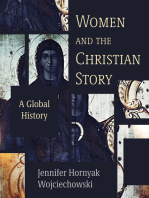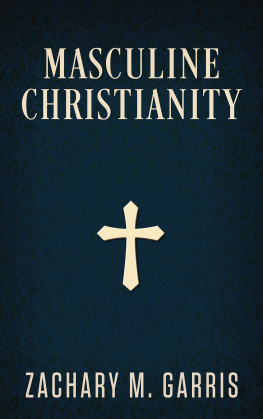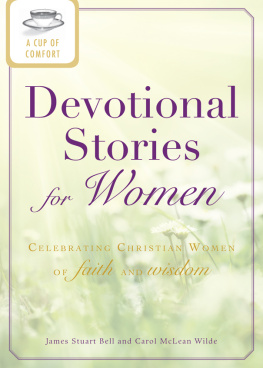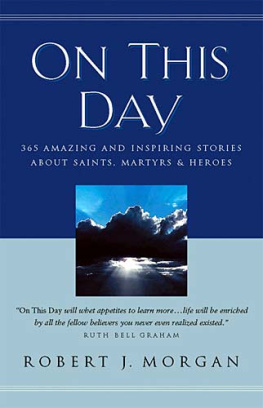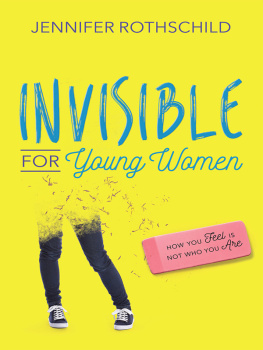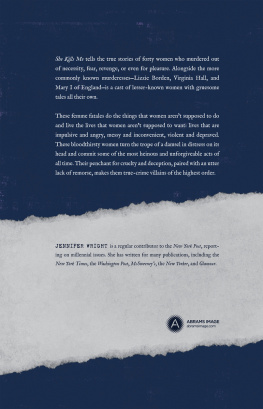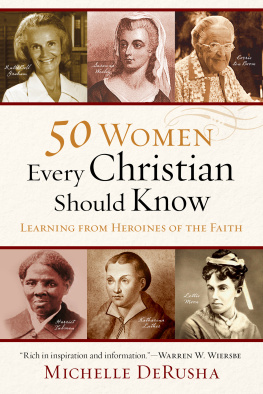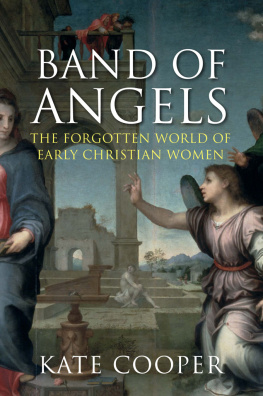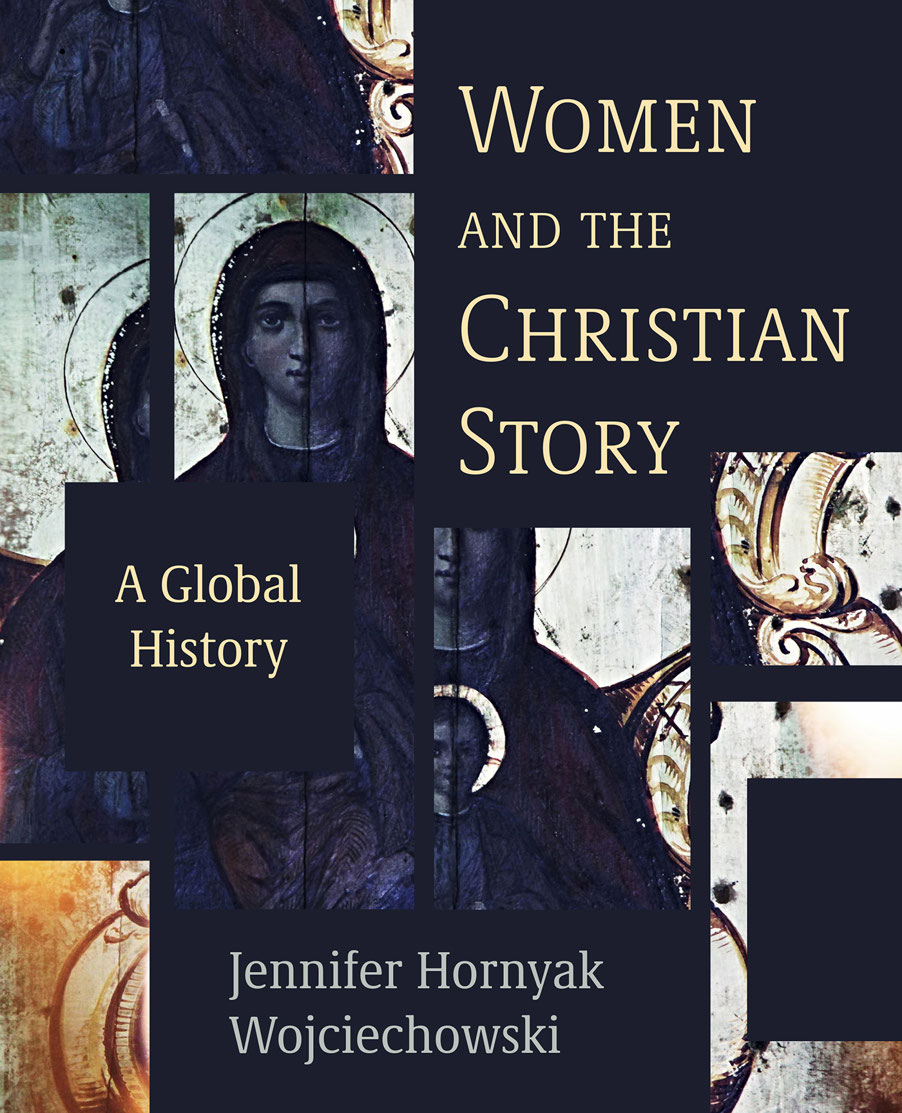
Praise for Women and the Christian Story
Dr. Wojciechowskis book, Women and the Christian Story, is a wonderfully compact and easily readable history of women in Christianity. It describes in lively and fascinating detail how women throughout the ages have interacted with the male leaders and theologians around them. More importantly, it centers the telling of Christian history around the women themselves. With this book, women are no longer the sidekicks or the backdrop to mens ideas, but they are the idea-makers and history-makers themselves. This well-researched book will enliven any church history course and will show students and readers just how central womens contributions have been to the Christian faith.
Amy Marga, professor of systematic theology, Luther Seminary
True to the vocation of a Christian historian, Dr. Wojciechowski takes a therapeutic approach to highlight womens accomplishments rather than focusing on the oppression women have faced, and yet without undermining the riches and depth of experiences that spurred a transformation in women, making them agents of global faith even in its darkest hours. A long-awaited book, more global than some other books available, accessible to non-scholars and students alike, inclusive of the stories of non-Western women as keepers of the faith.
Sashinungla Pongen, associate professor of church history, Oriental Theological Seminary, Nagaland, India
This book tells the real and messy story of Christian women through time and across the globe. Jennifer Hornyak Wojciechowski brings a rich complexity to this history and achieves this without falling into the usual traps of putting Christian women on a pedestal or overlooking their problems or social locations. While some of these stories may be familiar to readers interested in womens history, others are certain to be new and surprising to students of Christian history.
Nancy Ross, associate professor, Utah Tech University
The Christian story opens up in beautiful, diverse faces, phases, and spaces when following the webs involving women. Tracking Christian womens involvement from the time of Jesuss first followers through the modern era, Dr. Jennifer Hornyak Wojciechowski has laid out an inviting road map to engage and teach the Christian tradition(s) from an intentionally gender-inclusive perspective. The reader of this book will be energized and delighted.
Kirsi Stjerna, First Lutheran, Los Angeles/Southwest California Synod Professor of Lutheran History and Theology, Pacific Lutheran Theological Seminary of California Lutheran University
Women and the Christian Story provides an engaging and insightful overview of the many ways women from around the world have shaped Christianity through their actions, words, and writings. It combines breadth and depth, stretching from biblical times to the present, while including fascinating details on individual women and their communities. Wojciechowski effectively translates decades of scholarship in both womens and Christian history into a balanced, well-contextualized, and inspirational story for students and general readers.
Merry Wiesner-Hanks, Distinguished Professor of History Emerita, University of WisconsinMilwaukee
Women and the Christian Story
Women and the Christian Story
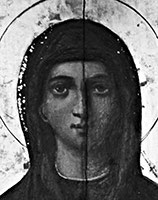
A Global History
Jennifer Hornyak Wojciechowski
Fortress Press
Minneapolis
WOMEN AND THE CHRISTIAN STORY
A Global History
Copyright 2022 Fortress Press, an imprint of 1517 Media. All rights reserved. Except for brief quotations in critical articles or reviews, no part of this book may be reproduced in any manner without prior written permission from the publisher. Email copyright@1517.media or write to Permissions, Fortress Press, PO Box 1209, Minneapolis, MN 55440-1209.
Cover designer: Kristin Miller
Cover image: copyright aeduard | Getty Images (icon from St. Lukes church, in Kotor, Montenegro, painted by Daskal Dimitrij in the 17th century)
Print ISBN: 978-1-5064-7375-8
eBook ISBN: 978-1-5064-7376-5
While the author and 1517 Media have confirmed that all references to website addresses (URLs) were accurate at the time of writing, URLs may have expired or changed since the manuscript was prepared.
Contents
This is a story about Christian women; it is also about martyrs, mystics, missionaries, leaders, preachers, theologians, saints, and prophets. It begins two thousand years ago in Israel and continues today with the diverse and rich global faith of an estimated two billion people. It is the story of how women have lived out their faith in different times and placessometimes subjugated, sometimes in positions of power. The story of women in Christianity is complex and nuanced, and one must resist the urge to present it as a story from oppression to triumph. The actors were imperfect human beings who influenced and were influenced by their cultures and societiessometimes for better, sometimes for worse. Yes, there were women who triumphed over adversity, but there were also women who oppressed others, and sometimes they were one and the same. At the very root of the story, though, is faith. The women presented in this story were believers, and they dedicated their lives to God, and that faith influenced their actions.
As Joan Didion once astutely pointed out, we tell ourselves stories in order to live. The field of history is many things, but I would argue that it is first and foremost our stories. Stories for a people looking for meaning, trying to understand that from which we came so that we can move forward. The major story in this book is that of expansion and developmenthow a small religious sect grew to a global faith and how women participated in that process. But that does not encapsulate the true beauty and complexity of the story. There are countless smaller stories, countless voices that make up this unwieldy field that spans two millennia on six different continents. Unfortunately, these stories have not all been treated equally. Throughout time, historians have favored a history that elevates men and their accomplishments over women and theirs. Women too often show up as a footnote to the stories of the great men who have supposedly shaped our world alone. Womens stories have been relegated to the sidelines or, worse, lost, but it does not have to be that way.
I remember the first time I realized that there was an entire, albeit small, field of womens history. I had enrolled in a womens history course at my university as an undergraduate student. I loved history; for better or worse, I had already launched myself on the inevitable path to becoming a historian. But I distinctly remember listening, riveted, to the lecturer who told me stories about myself. A history that featured women. We had all been duped by our public school history classes; women had been important figures in the ages that came before us. Of course women shaped our worldthey make up roughly half the worlds population. How had I not known this?
The history of Christianity does not do much better at recalling the stories of women than secular history does. It may even be worse. Certain traditions have elevated the stories of women saints, but for most of history, there was little effort to holistically look at womens role in the development, spread, and practice of the faith. In fact, there were very few attempts to craft any type of systematic womens Christian history before the rise of second-wave feminism. Even then, the field has stayed rather niche, and attempts to bring more women into the historical record have been uneven. Womens history has been plagued by similar problems that have plagued the larger field of historya favoring of white and affluent figures to the detriment of others.
Next page
